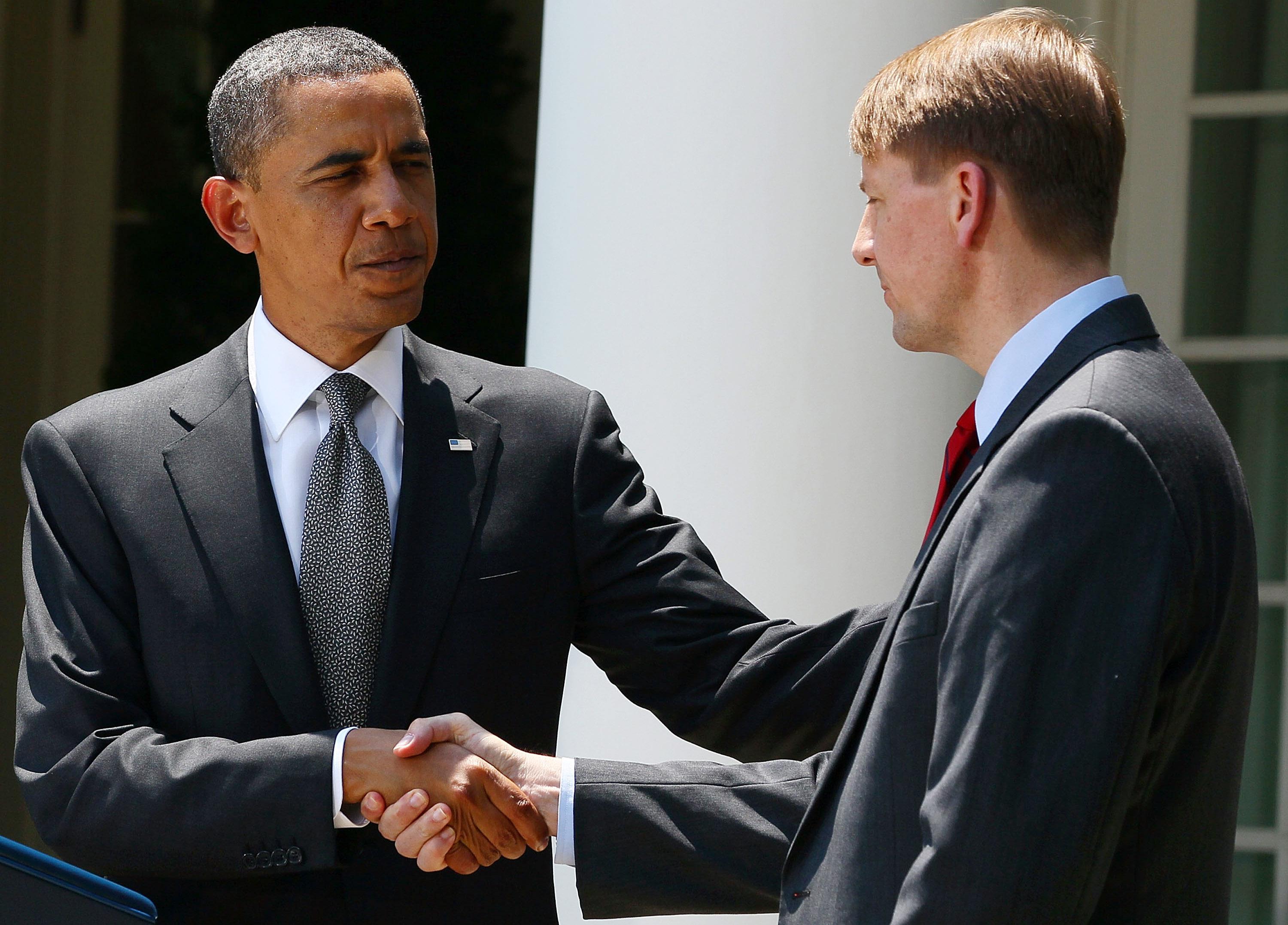Ninety-seven of the U.S. Senate’s 100 members filed into the Old Senate Chamber around 6 p.m. They didn’t exit until 9:30 p.m. In the meantime, and over the objections of staff, reporters pounced on any member who left to tend to his bladder. They stayed surprisingly silent, sworn to secrecy about the first bipartisan meeting of the caucuses that many of them had ever attended.
Only as they started to head out did the senators give the gist. There was no deal to prevent the nightmare scenario—cloture votes Tuesday morning, which Democrats would lose, before voting to change the rules and allow up-or-down votes on executive branch nominees.
“It’s a given that they have the votes,” said Republican Sen. Jeff Flake.
“The way I see it,” said Democratic Sen. Tom Udall—one of the original 2008 freshman demanding filibuster reform—“we’re headed to votes tomorrow on the cloture.”
What could forestall that? Some senators who’ve cut deals in the past hinted at something that would allow a few nominees in under the wire, probably Richard Cordray to CFPB, probably some NLRB members, but not change the rules for good.
“We had a great discussion,” said North Dakota Sen. John Hoeven, whose border security amendment basically cleared the way for the Senate’s immigration bill. “There isn’t a solution on the table per se, but there’s a willingness to discuss.”
Leaders would keep the talks going tonight; according to Flake, Sen. John McCain and Sen. Chuck Schumer were in the mix, too. But Democrats weren’t backing down on the need to confirm. It was unacceptable to them, said Delaware Sen. Chris Coons, to imagine Labor Day coming with a powerless NLRB and a vacant seat over at Labor.
Still, Coons spoke in awed tones about the long, unmoderated meeting. “It was a constructive, thoughtful, deliberate session,” he said. “I wish we did this more frequently. It was one of the most engaging evenings I’ve had as a senator. I was reminded of just how capable my colleagues are. Frankly, if we did that more often, we would have a healthier Senate. Just … the number of senior senators who spoke longingly of the way it used to function, and the number of junior senators who spoke positively about recent, constructive experiences they’d had created a general, positive. The number of expressions of regret for the possibility of doing something to harm the institution moved it into a positive place.”
A compromise that allowed NLRB members to get up-or-down votes is harder than it sounds. Republicans would like the current crop of Democratic nominees, whom Mitch McConnell constantly calls “unconstitutional,” to be sent away with a gift bag, replaced by new nominees. “I can’t imagine that the White House doesn’t know a couple of very good labor leaders who’d like to serve on the NLRB,” said Tennessee Sen. Lamar Alexander.
There’s a deadline, though. The last non-recess-appointed NLRB member watches his term wrap up on Aug. 1. The others are done on Aug. 27. Democrats aren’t entirely confident they could vet and confirm nominees that quickly.
“When it comes down to it,” said Flake, “there are only a few senators who would vote against the party leadership.”
